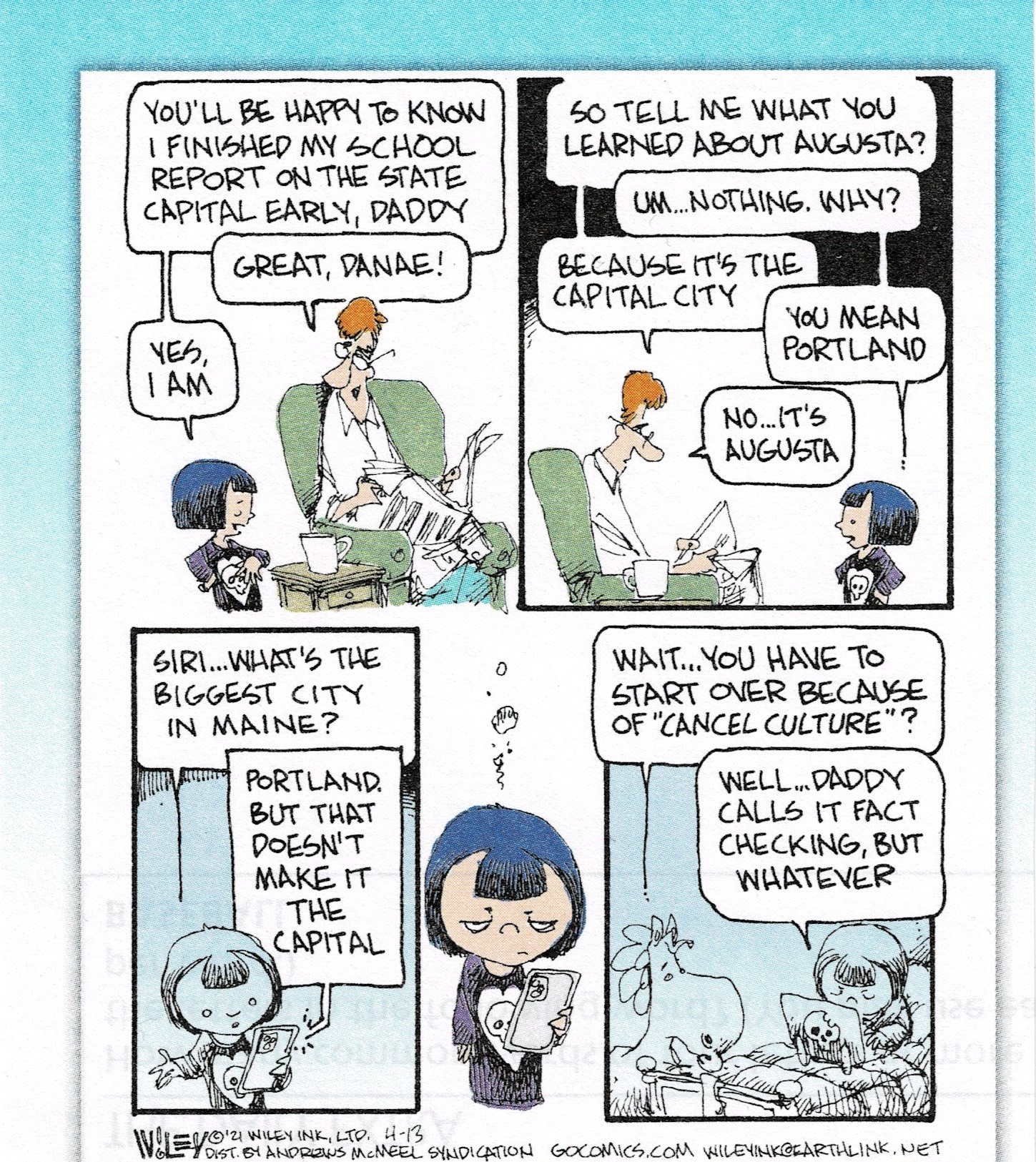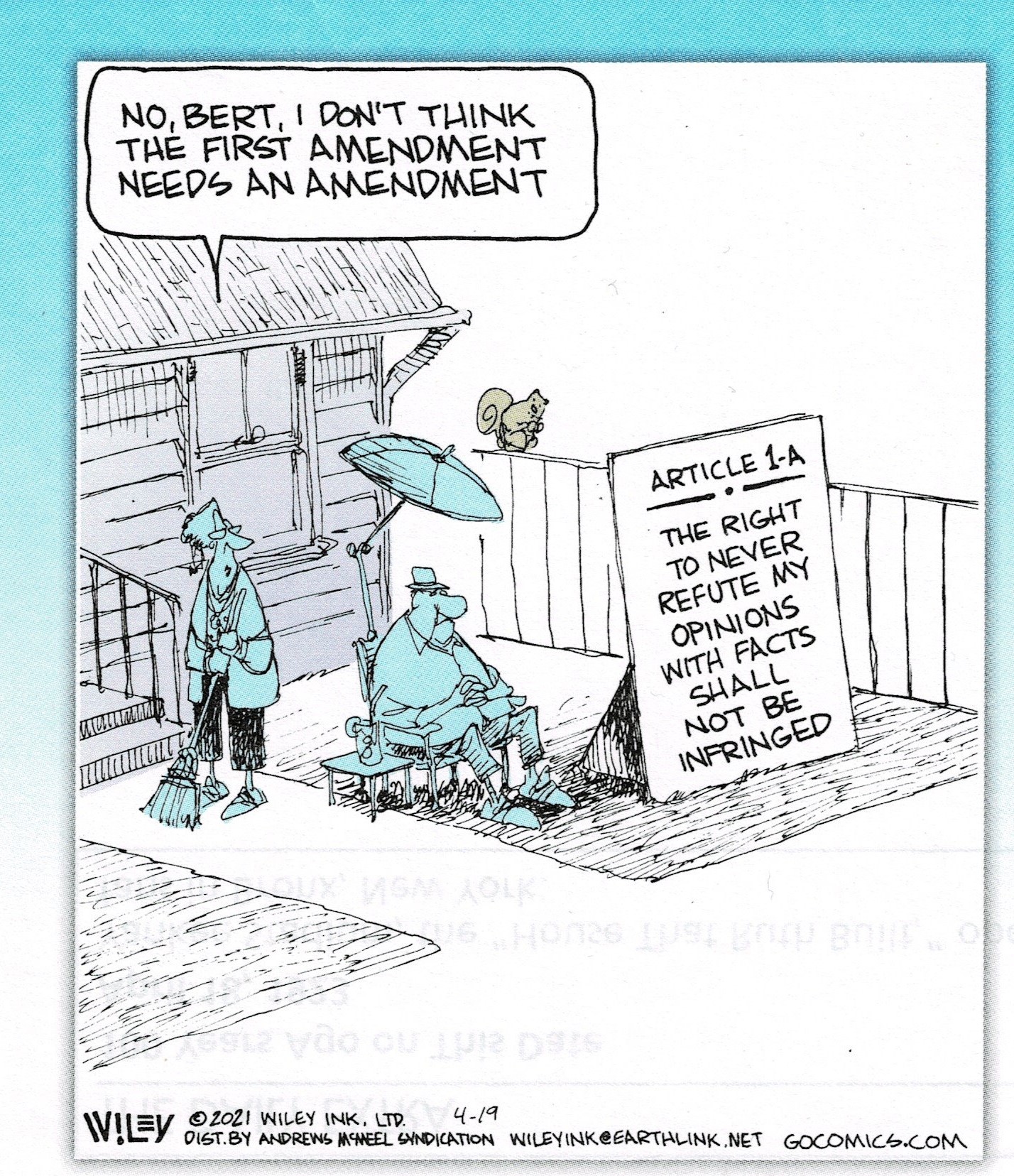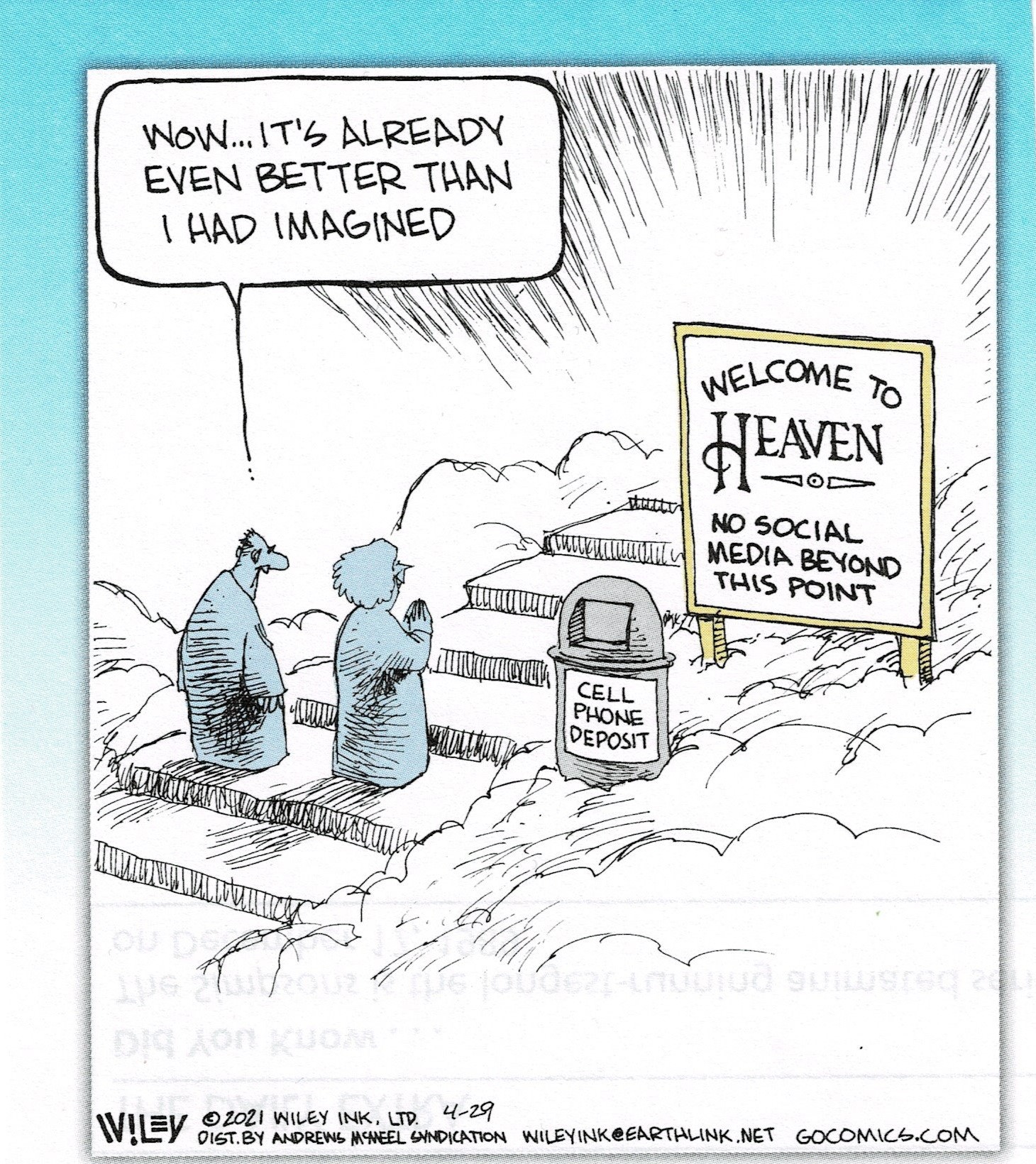The reader may think immediately of the MAGA folks, their mouthpieces Trump and DeSantis, but there is resistance from the economic side as well if one considers the resistance to going green by the fossil fuel industry, the larcenous greed of private equity firms, the religious purity of the National Rifle Association and its supporting manufacturers, and internationally, any person or movement insistent on having bullet wars – Putin included.
The message is this: Let’s make the rest of human history as pleasant as possible. The self-interest embedded in Reaganomics began sinking twenty years ago. Wars can be won more cheaply with electronics than with bullets. Also included are today’s ‘woke’ liberals – liberal philosophy but failure to abide in order to enjoy their comfort and generational success.
Because of competitive news corporations, the MAGA movement seems larger and more overwhelming than it may be. Conservative financiers herd the group, feeding large sums of money into political activity – especially in those states with a notable presence of MAGA, where state politics are a virgin environment for manipulation.
However, Resistant Conservatives, it is all for naught. It is for the Woke folks as well, and for fiscal hoarding. This petulant class war is a spit in the ocean of turmoil coming upon all humans.
Consider some of the other challenges (and their size and cost):
֎ Global Warming – For size and cost, global warming is in a league of its own. Already many nations around the world have suffered irreparable damage to their economies through growing drought, storms and floods. The United States is pretty rich right now but global warming alone already has cost US governments and corporations trillions of dollars. The Fourth National Climate Assessment, released November 23, predicts the U.S. economy will shrink by as much as 10 percent by the end of the century – just from changing climate. Most other nations will not survive if they have to lose ten percent of their current economy. This leads to the next large challenge:
֎ Immigration – International migration added more than a million people to the U.S. population between July 1, 2021 and July 1, 2022. 150,000 immigrants have crossed the US border every month for the last eighteen months. Small potatoes. In just seven years the population growth in America will be driven by immigrants more than native-born babies and by 2050 immigration will account for over 80 percent of US population growth according to the US Census Bureau. What’s more, the report from Negative Population Growth Inc. said that by 2050, US births will plummet to 315,000 while immigration surges to over 1.4 million. Global migration will be so disruptive that the US economy, as well as all other national economies, if they can afford it, will have to share national budgets internationally.
Already in the US, the vast wheat farms in the southwest suffered a bad crop in 2022, causing economic issues in the affected states and causing feed shortage for national livestock. The US can suffer these economic issues for a while but most nations can’t.
֎ International consortia – In the national news just days ago, the G20, a group of 19 nations and the European Union, urged a large increase in contributions for the purpose of balancing global sustainability. The United Nations is already tracking current hardships and developing sustainability strategies. What exists around the world today as trade organizations will evolve into international sustainability consortia.
֎ Artificial Intelligence – AI is everyone’s enemy. Some scientists fear AI will dominate political legislation without human intervention, making the definition of a nation more a link in a global automated economy.
So, Resistant Conservatives, let’s make it easier for all of us; in fifteen years sexual variability, abortions, and a sunken Florida and Louisiana will be unimportant issues.
Ancient Mariner





